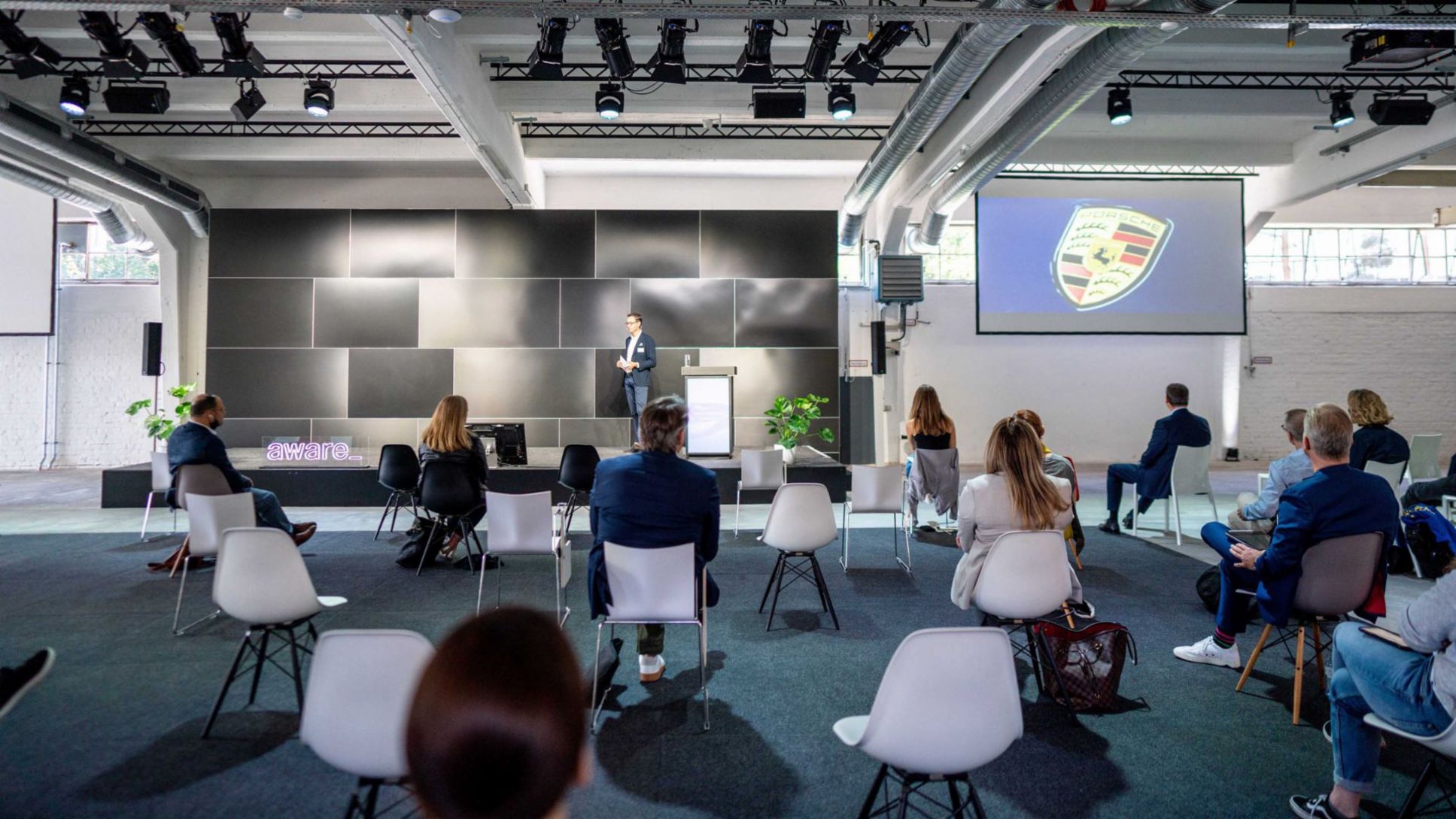Porsche operates a holistic stakeholder management system based on the balanced scorecard approach. This allows for the expectations of the individual stakeholder groups to be systematically recorded and important social trends to be derived from them.
The company considers the interests and points of view of various stakeholders continuously and factors them into its strategic plans and business decisions, and sustainability is no exception. In turn, the stakeholders can learn more about the current and future activities of Porsche as well as the requirements and general conditions. By changing perspectives in this way, the sports car manufacturer aims to understand other positions, overcome challenges through cooperation and build long-term partnerships. By closely involving its stakeholders, Porsche can identify and evaluate changes in market conditions and customer behavior as well as market potential at an early stage and react strategically to reduce risks and take advantage of opportunities. The perspectives of the relevant stakeholders play a key role in the decision-making process at all levels of the company and the strategy, both in assessing the status quo and in the future direction of new initiatives. The business model is an essential part of the strategy, which either builds on or defines the business model. Porsche’s focus on significantly increasing the proportion of electrified vehicles takes into account the requirements and expectations of stakeholders for modern and sustainable mobility solutions, for example, as part of annual review processes. At the same time, the fundamental business model—the sale of vehicles in the luxury segment—the core competence of Porsche, remains unchanged.
The management bodies of Porsche are also regularly informed about stakeholder interests as part of the sustainability management reporting processes and include these in their strategic discussions on various topics.
Porsche Stakeholder
Porsche understands stakeholder engagement to mean systematically and continuously engaging with stakeholder groups in society, actively listening to them and taking their views into account when developing strategies. A stakeholder is any individual or group with an interest in a decision or activity of Porsche because they have a direct or indirect influence over its actions or are themselves affected by them.
Porsche performs regular internal analyses to identify its most important stakeholder groups. The company considers the following to be its key stakeholders: local residents and communities, customers and business partners, investors and analysts, the media, employees, policymakers and associations, nongovernmental and charitable organizations, the scientific community and experts and competitors.


